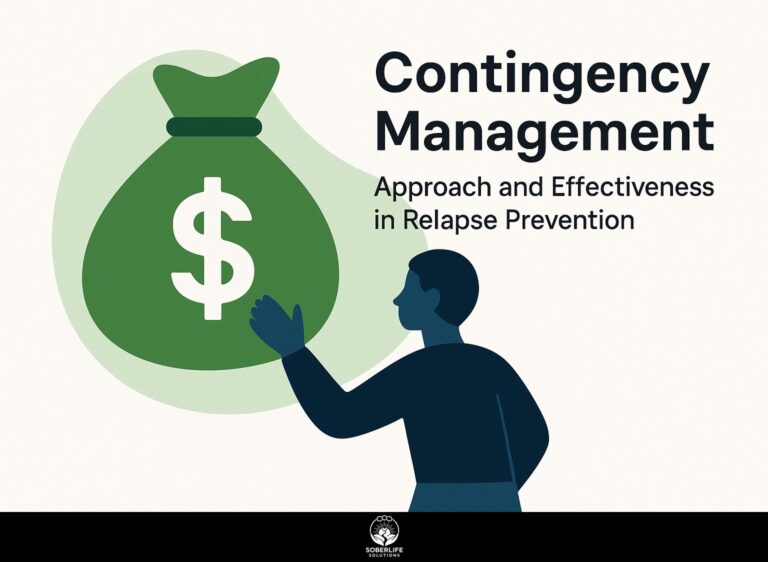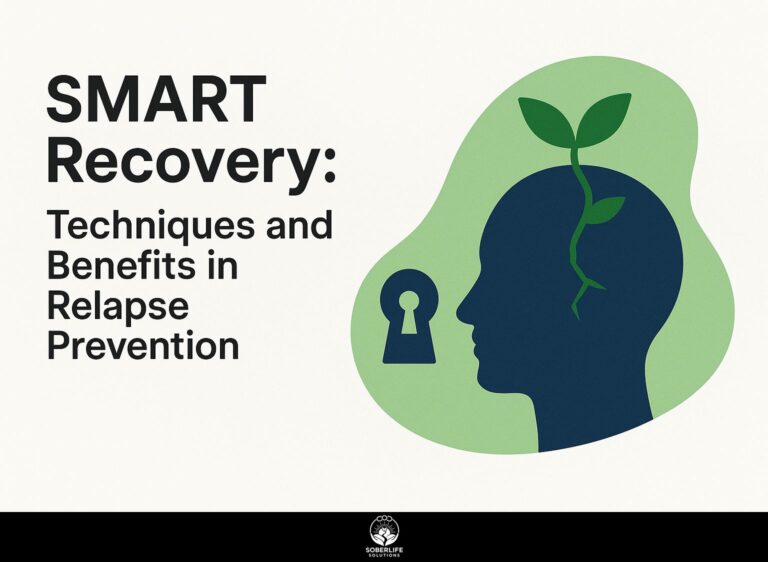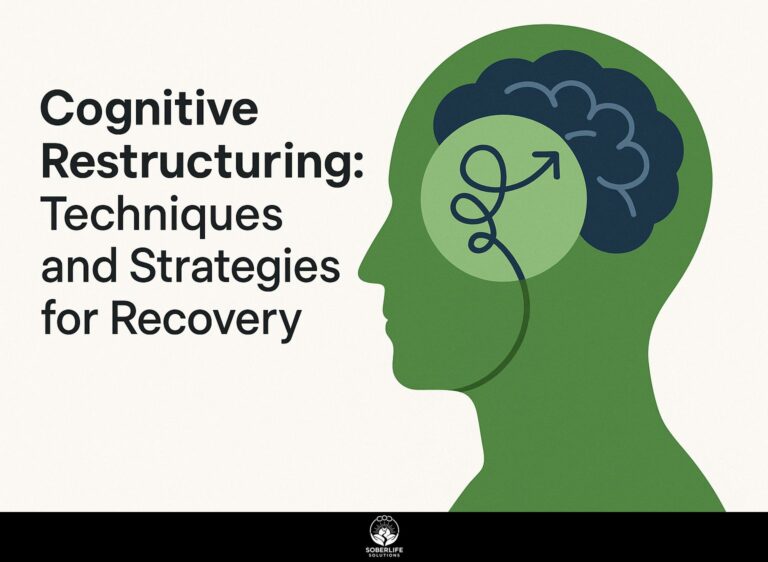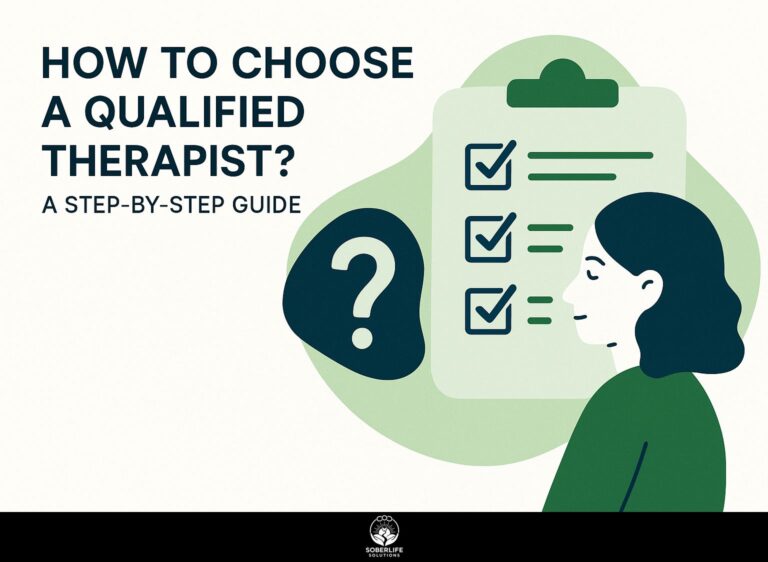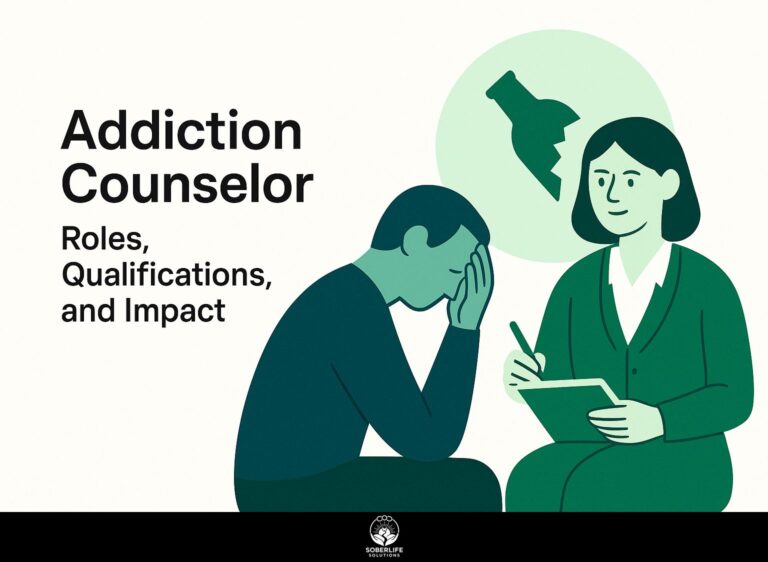How to Prevent Alcohol Relapse? Strategies for Recovery
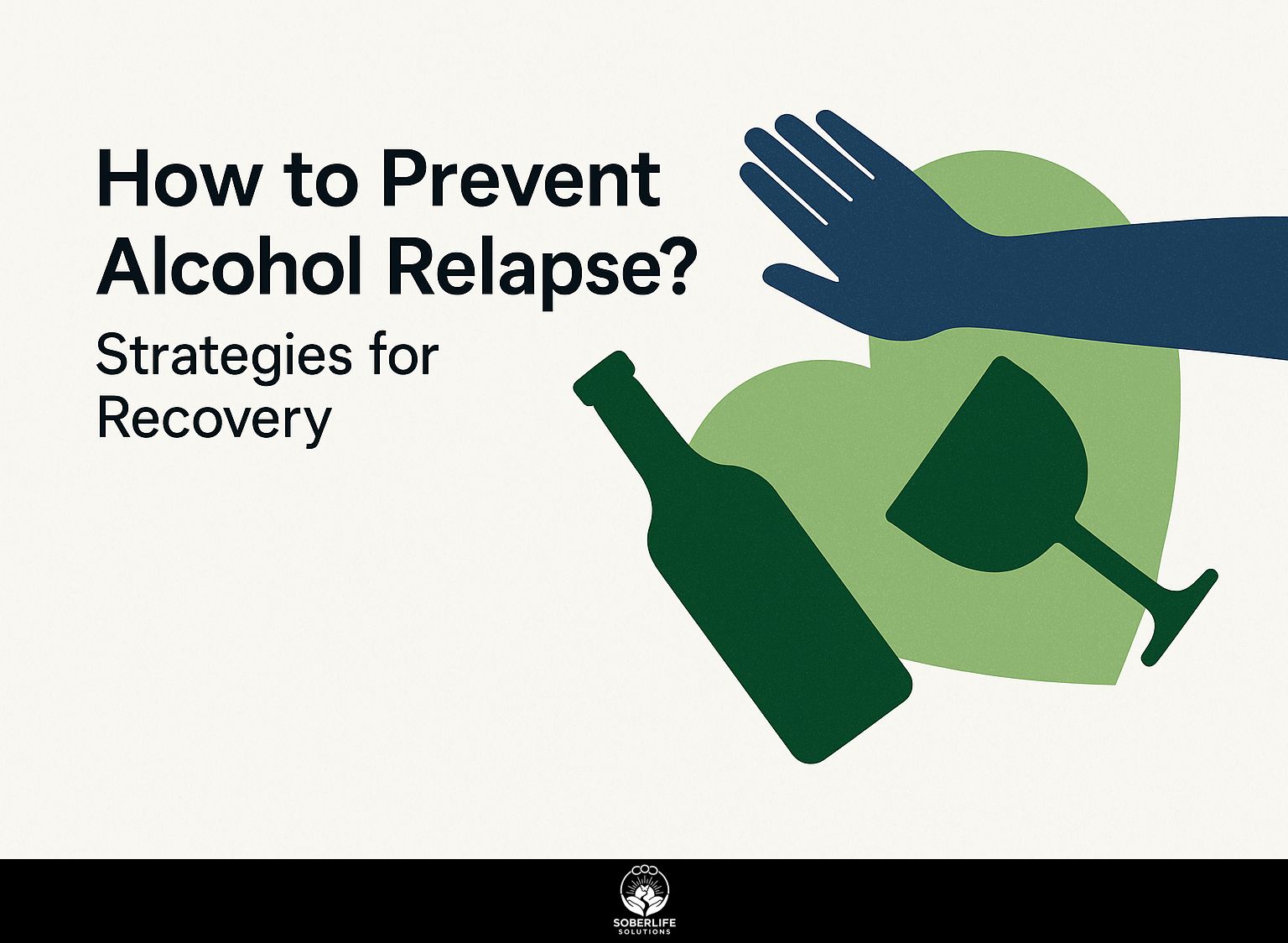
Relapse is a major worry for anyone going through recovery from alcohol and drug addiction. Learning about substance use can help people apply successful methods. In this article, we will look into useful advice and methods to avoid returning to alcohol use. We will discuss how to create a strong support network and learn ways to deal with challenges that encourage long-term recovery. Learn how minor adjustments can promote a healthier and stronger way of living.
Key Takeaways:
Understanding the Triggers of Relapse
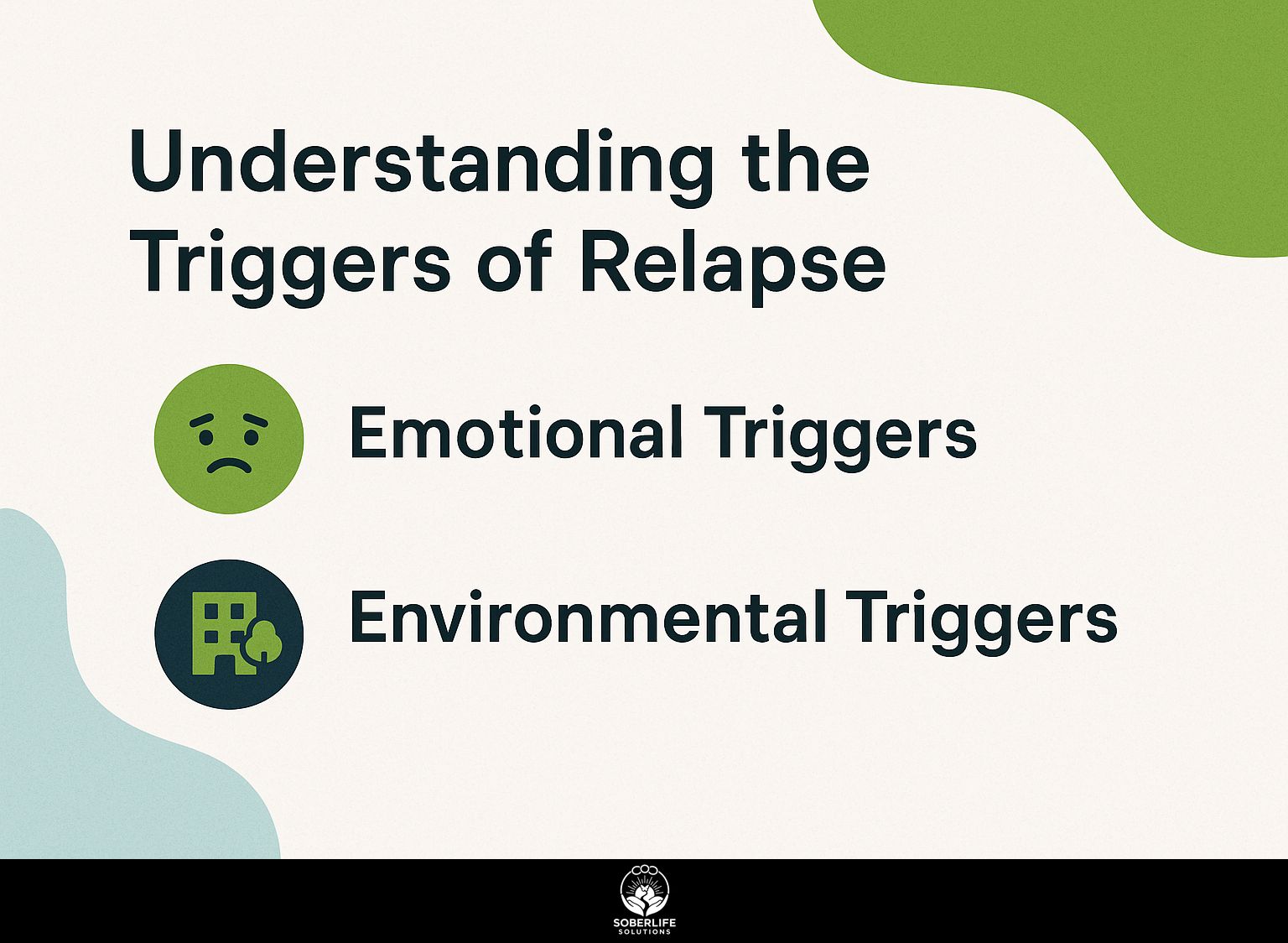
It is important to identify the different reasons that can cause a setback in order to create strong ways to deal with them and keep recovering over time. A detailed review by ResearchGate highlights various factors contributing to relapse in substance use disorders, offering valuable insights for those seeking to understand and mitigate these triggers. For an extensive analysis of strategies to manage these challenges, our deep dive into managing triggers in alcoholism recovery provides practical guidance.
Emotional Triggers
Emotional triggers are significant predictors of relapse, often linked to feelings of guilt, anxiety, or depression that may arise in recovery.
To manage these triggers effectively, start by identifying your emotional patterns. Keep a trigger journal, noting incidents that provoke stress or cravings alongside your emotional responses. This awareness allows you to recognize patterns over time.
Use cognitive therapy methods like cognitive restructuring, which means questioning negative thoughts using logical reasoning backed by evidence. For practical support, consider using apps like MoodKit or CBT Thought Diary that facilitate mood tracking and thought analysis. These tools align with techniques suggested by Every Mind Matters, a respected source for mental health strategies.
These steps help you manage your feelings and aid ongoing healing.
Environmental Triggers
Environmental triggers include the places and people associated with past substance use and can significantly influence relapse risk.
To mitigate these risks, start by creating a personal trigger list that identifies specific bars, parties, or situations where cravings may arise.
Next, avoid high-risk environments, opting instead for gatherings in neutral or supportive settings.
Developing an alternative social network, such as joining recovery groups or engaging in hobbies with sober friends, can provide a healthier outlet.
Practicing mindfulness techniques-like deep breathing or grounding exercises-can help manage urges when faced with triggers.
These strategies create a proactive approach to minimizing relapse potential.
Building a Support System
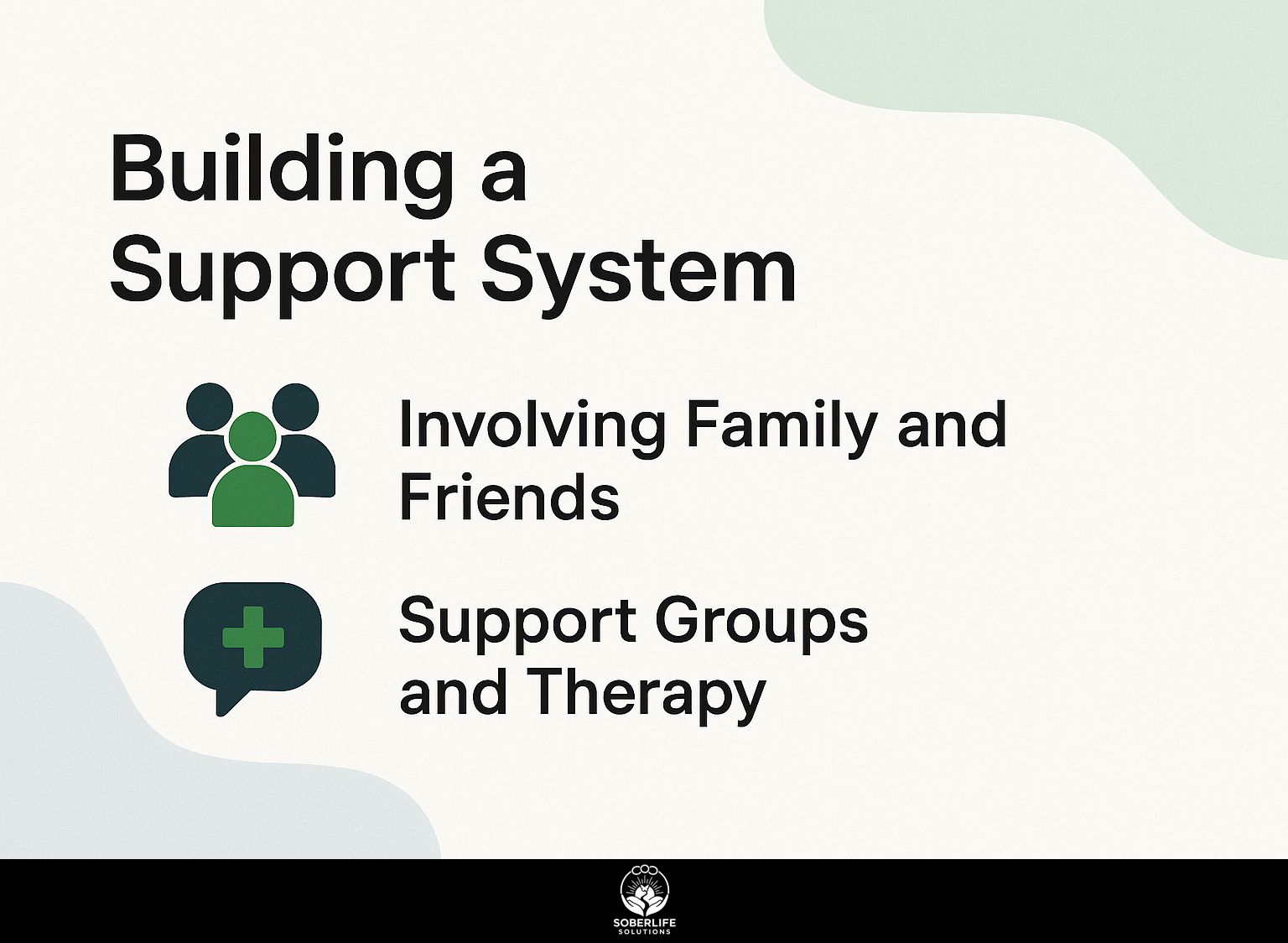
A solid network of help is important for successful recovery, guiding through the difficulties of staying sober and dealing with relapses. Worth exploring: Sober support systems that help ensure a stable foundation throughout the recovery journey.
Involving Family and Friends
Involving family and friends in recovery can offer emotional support and responsibility, important for avoiding relapse.
To effectively involve loved ones, start by setting clear recovery goals together, such as attending therapy sessions or maintaining sobriety for a specific period.
Hold regular check-ins to discuss progress and address challenges, creating an open dialogue for support. Teaching them about addiction can help them understand, so they can support without criticism.
To communicate regularly, use tools like WhatsApp for quick messages or video chats, which helps you stay in touch and support each other.
Support Groups and Therapy
Participating in support groups and therapy offers recovering individuals community support and professional guidance, which are essential for sustained recovery.
Some well-known support groups include:
- Alcoholics Anonymous (AA) has a 12-step plan that promotes accepting personal responsibility.
- SMART Recovery helps people gain self-confidence.
Both types can be accessed online, such as through Hazelden Betty Ford’s virtual meetings, or in-person to promote connection. Group therapy sessions typically allow participants to share experiences and track their recovery goals collaboratively.
Sharing experiences can increase motivation and suggest different ways to address issues, making recovery feel less isolating and more manageable. For those interested in a comprehensive overview, this analysis by ResearchGate covers how regular attendance to support groups can aid in maintaining recovery from addiction.
Developing Coping Strategies
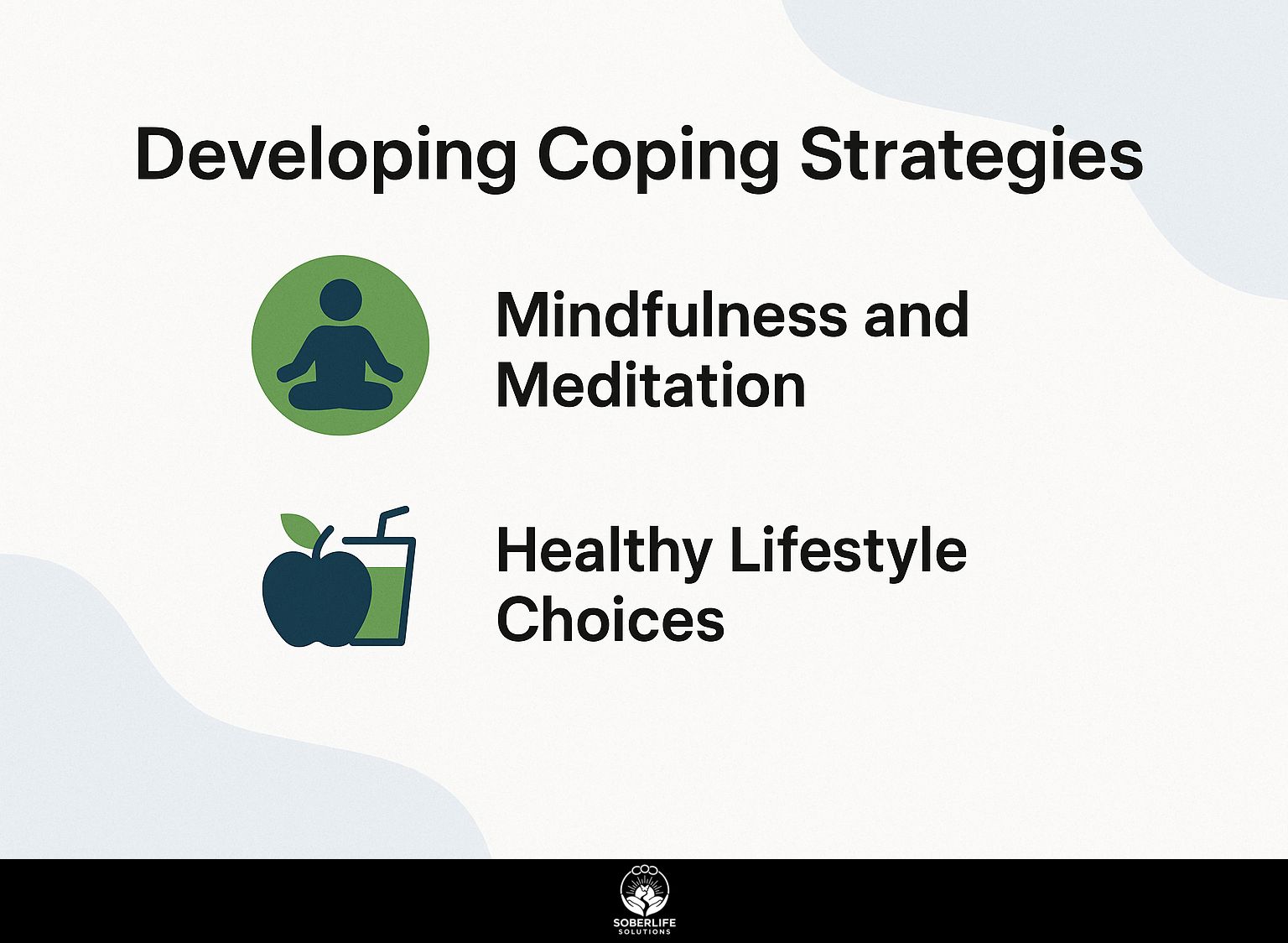
Creating good ways to handle cravings is important for staying sober over time, especially during tough times. If you’re looking for effective methods, our guide on how to address cravings offers strategies for long-term recovery.
Mindfulness and Meditation
Mindfulness and meditation have been shown to lower stress and help people control their emotions, enabling those in recovery to handle cravings successfully.
Start your day with mindfulness by spending 5-10 minutes on meditation using apps such as Headspace or Calm.
Focused breathing is a powerful technique-simply inhale deeply for four counts, hold for four, then exhale for six. Another effective method is the body scan; lie down comfortably and mentally check in with each part of your body, noticing sensations without judgment.
Research shows that regular mindfulness exercises can cut relapse rates by up to 50%, making these practices very beneficial for recovery.
Healthy Lifestyle Choices
Picking good habits can improve well-being and help maintain sobriety by strengthening defenses against relapse triggers.
Doing regular exercise, like walking quickly, swimming, or yoga, can greatly improve your mood and energy levels. Aim for at least 150 minutes of moderate activity each week.
Coupling this with a balanced diet rich in whole foods-like fruits, vegetables, lean proteins, and whole grains-promotes mental clarity and reduces cravings. Prioritizing 7-9 hours of sleep nightly aids in emotional regulation.
Individuals like John, who integrated these habits, report increased resilience and improved mental health, significantly lowering their risk of relapse.
Setting Realistic Goals
Having realistic goals for recovery helps keep you motivated and lets you see how far you’ve come while getting better.
Using the SMART criteria can help you set clearer goals. For instance, instead of saying ‘I will attend meetings’, specify ‘I will attend three meetings per month’.
To track these goals, consider using project management tools like Trello or Asana, where you can create checklists for actions like completing therapy assignments or logging daily moods.
These platforms allow you to see your progress visually, supporting you in staying accountable and noticing your improvement over time, ensuring your recovery goals are met and can adjust as you advance.
Creating a Relapse Prevention Plan
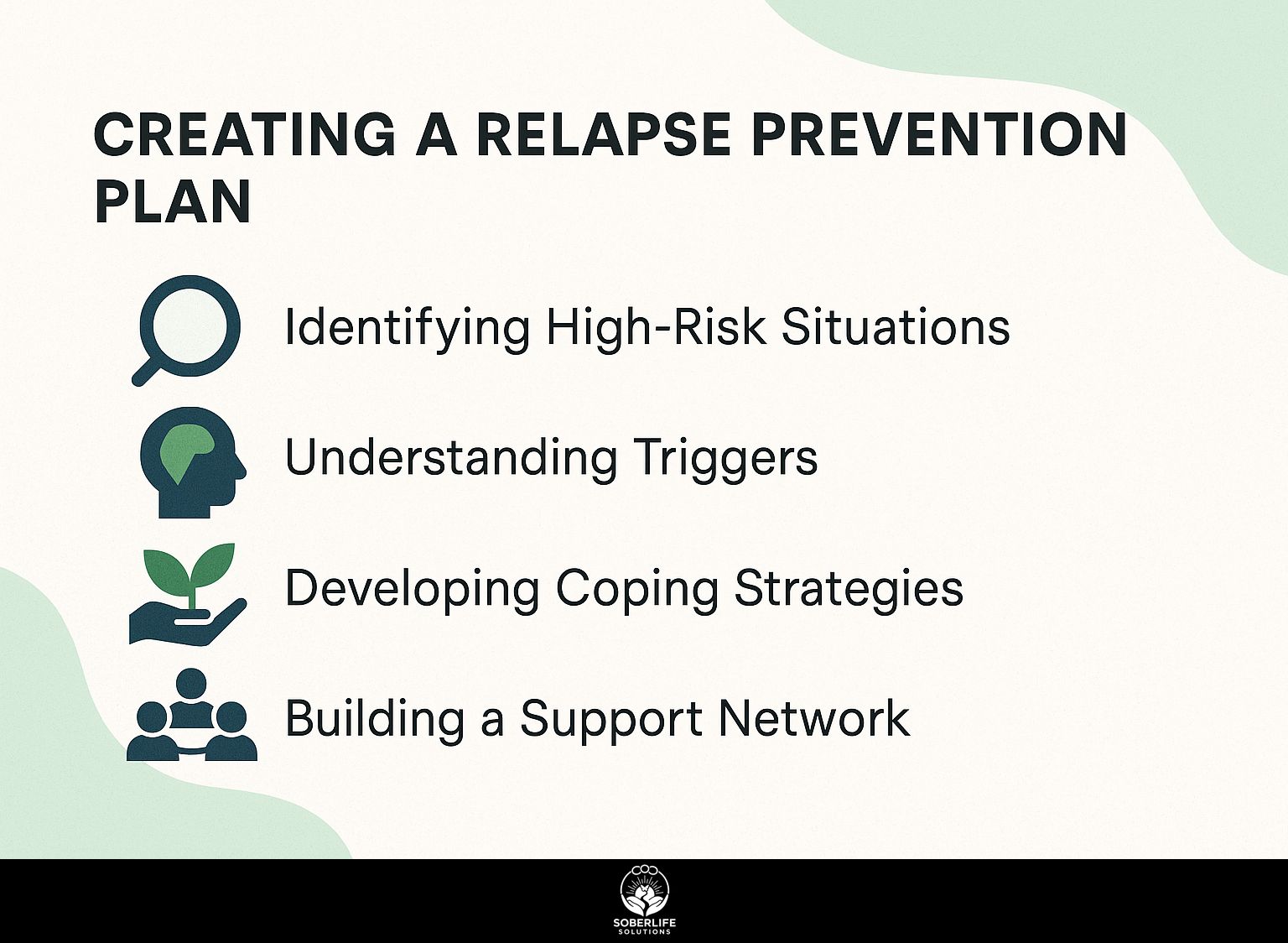
Having a solid plan to prevent relapse helps people find and manage possible triggers, significantly reducing the risk of returning to previous habits. As part of your strategy, it’s beneficial to incorporate sober support systems that help in maintaining long-term sobriety.
Identifying High-Risk Situations
Recognizing risky scenarios is important in creating a clear plan to prevent relapse and avoid potential triggers.
Common high-risk scenarios include attending parties where alcohol is served, encountering old friends who use substances, or being in environments that previously triggered substance use.
To assess your risk, consider the emotional stakes and your current coping abilities. Create alternative plans such as:
- Having a sober buddy accompany you
- Setting clear exit strategies for when the environment feels overwhelming
- Choosing activities that steer clear of substances altogether
Adjusting your social circles and prioritizing supportive environments can also help mitigate these risks.
Continuing Education and Self-Improvement
Spending time learning new things and working on yourself can help you recover better and deal with upcoming difficulties.
Consider participating in workshops or online courses that specifically address addiction recovery. Websites like Coursera offer courses on emotional intelligence and resilience building, while local community centers often host group therapy sessions and skill-building workshops.
Continuously learning gives you new ways to handle stress and helps build a positive self-image by gaining new skills and forming support networks. Going to these programs often can help set a regular schedule that encourages responsibility and improvement.
Frequently Asked Questions
What is alcohol relapse and why is it important to prevent it?
Alcohol relapse is when someone starts drinking heavily or in a harmful way again after they had stopped or were recovering. Preventing relapse is important because it can cause setbacks and delay the achievement of lasting sobriety.
What are some common triggers for alcohol relapse?
Some common triggers for alcohol relapse include stress, negative emotions, social pressure, boredom, and exposure to alcohol or drinking environments. It is important to identify and address these triggers in order to prevent relapse.
What are some key strategies for preventing alcohol relapse?
Some key strategies for preventing alcohol relapse include building a strong support system, avoiding triggers, developing healthy coping mechanisms, setting realistic goals, and staying accountable to oneself and others.
How can therapy or counseling help in preventing alcohol relapse?
Therapy or counseling can be a helpful tool in preventing alcohol relapse by providing a safe space to discuss and address underlying issues that may contribute to substance use, as well as teaching coping skills and relapse prevention techniques.
Are there any lifestyle changes that can aid in preventing alcohol relapse?
Yes, regularly exercising, eating healthy foods, getting good sleep, and enjoying leisure activities can improve overall health and reduce the likelihood of reverting to previous behaviors.
What should I do if I do experience a relapse?
If you face a problem, it’s important to find help and return to your recovery plan. Remember that relapse does not mean failure and it is possible to get back on track. Reach out to a therapist, support group, or trusted friend or family member for help and support.

